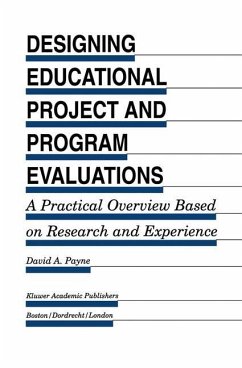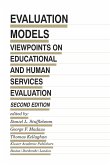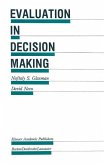Drawing upon experiences at state and local level project evaluation, and based on current research in the professional literature, Payne presents a practical, systematic, and flexible approach to educational evaluations. Evaluators at all levels -- state, local and classroom -- will find ideas useful in conducting, managing, and using evaluations. Special user targets identified are state department of education personnel and local school system administrative personnel. The volume can be used by those doing evaluation projects `in the field', or as a text for graduate courses at an introductory level.
The book begins with an overview of the generic evaluation process. Chapter Two is devoted to the criteria for judging the effectiveness of evaluation practice. Chapter Three addresses the all important topic of evaluation goals and objectives. Chapters Four, Five and Six basically are concerned with the approach, framework, or design of an evaluation study. Chapter Four contains a discussion of four major philosophical frameworks or metaphors and the implications of these frameworks for conducting an evaluation. Chapters Five and Six describe predominantly quantitative and qualitative designs, respectively. Design, implementation and operational issues related to instrumentation (Chapter Seven), management and decision making (Chapter Eight), and reporting and utilization of results (Chapter Nine) are next addressed. The final chapter of the book (Chapter Ten) considers the evaluation of educational products and materials.
Hinweis: Dieser Artikel kann nur an eine deutsche Lieferadresse ausgeliefert werden.
The book begins with an overview of the generic evaluation process. Chapter Two is devoted to the criteria for judging the effectiveness of evaluation practice. Chapter Three addresses the all important topic of evaluation goals and objectives. Chapters Four, Five and Six basically are concerned with the approach, framework, or design of an evaluation study. Chapter Four contains a discussion of four major philosophical frameworks or metaphors and the implications of these frameworks for conducting an evaluation. Chapters Five and Six describe predominantly quantitative and qualitative designs, respectively. Design, implementation and operational issues related to instrumentation (Chapter Seven), management and decision making (Chapter Eight), and reporting and utilization of results (Chapter Nine) are next addressed. The final chapter of the book (Chapter Ten) considers the evaluation of educational products and materials.
Hinweis: Dieser Artikel kann nur an eine deutsche Lieferadresse ausgeliefert werden.








